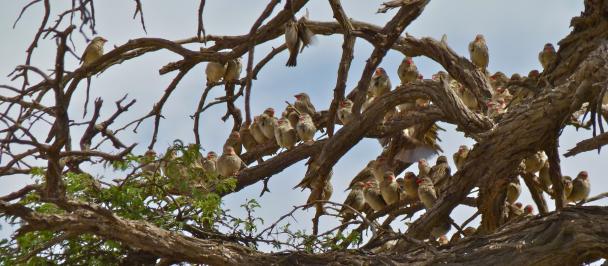Harnessing Digital Technologies for Gender Equality and Climate Action
Closing the Gap, Opening Opportunities
June 1, 2023
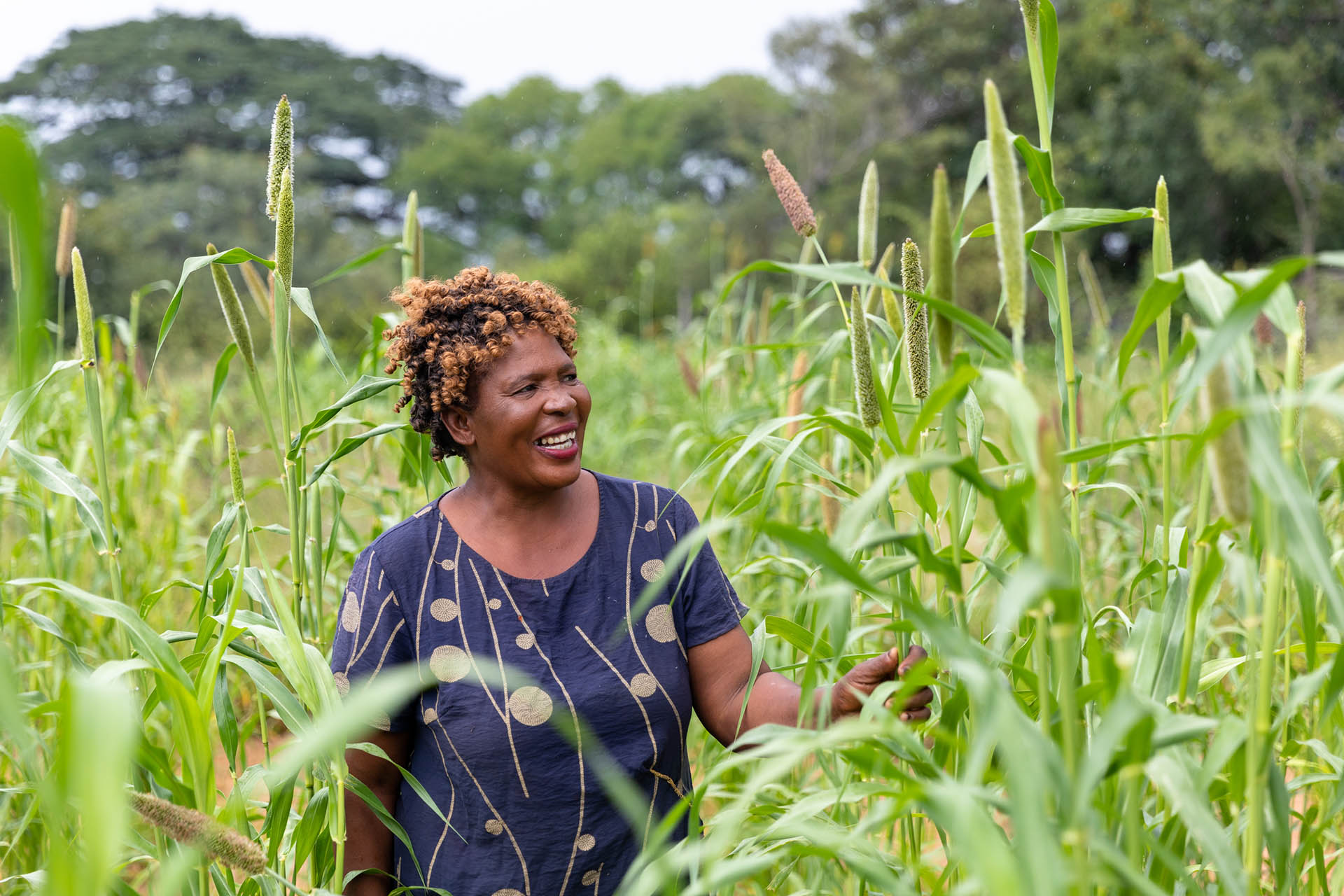
When empowered with climate-smart agriculture and digital innovations, women can lead the twin transition as solution providers, not victims.
Climate change has a disproportionate impact on women, who often bear the brunt of its consequences. In many societies, women are responsible for tasks like food production and water collection, which become increasingly challenging due to changing weather patterns and unpredictable rainfall. Unfortunately, limited access to resources and decision-making power further hampers their ability to adapt to climate change.
Similarly, women are also disproportionately affected by the digital divide, which refers to the gap in access to digital technologies and the internet. This divide restricts women's access to information, education, and economic opportunities, reinforcing gender disparities. Bridging the digital divide and addressing climate change with a gender-responsive approach are crucial for empowering women and ensuring their equal participation in sustainable development.
However, women's proximity to the problem uniquely positions them to understand and address the challenges they face. Their direct involvement in day-to-day activities related to agriculture, water management, and household resilience equips them with valuable insights into the challenges posed by climate change and coping mechanisms. By placing women at the forefront of climate action, we can accelerate the pace at which we address the challenges arising from climate change and close the digital gender divide.
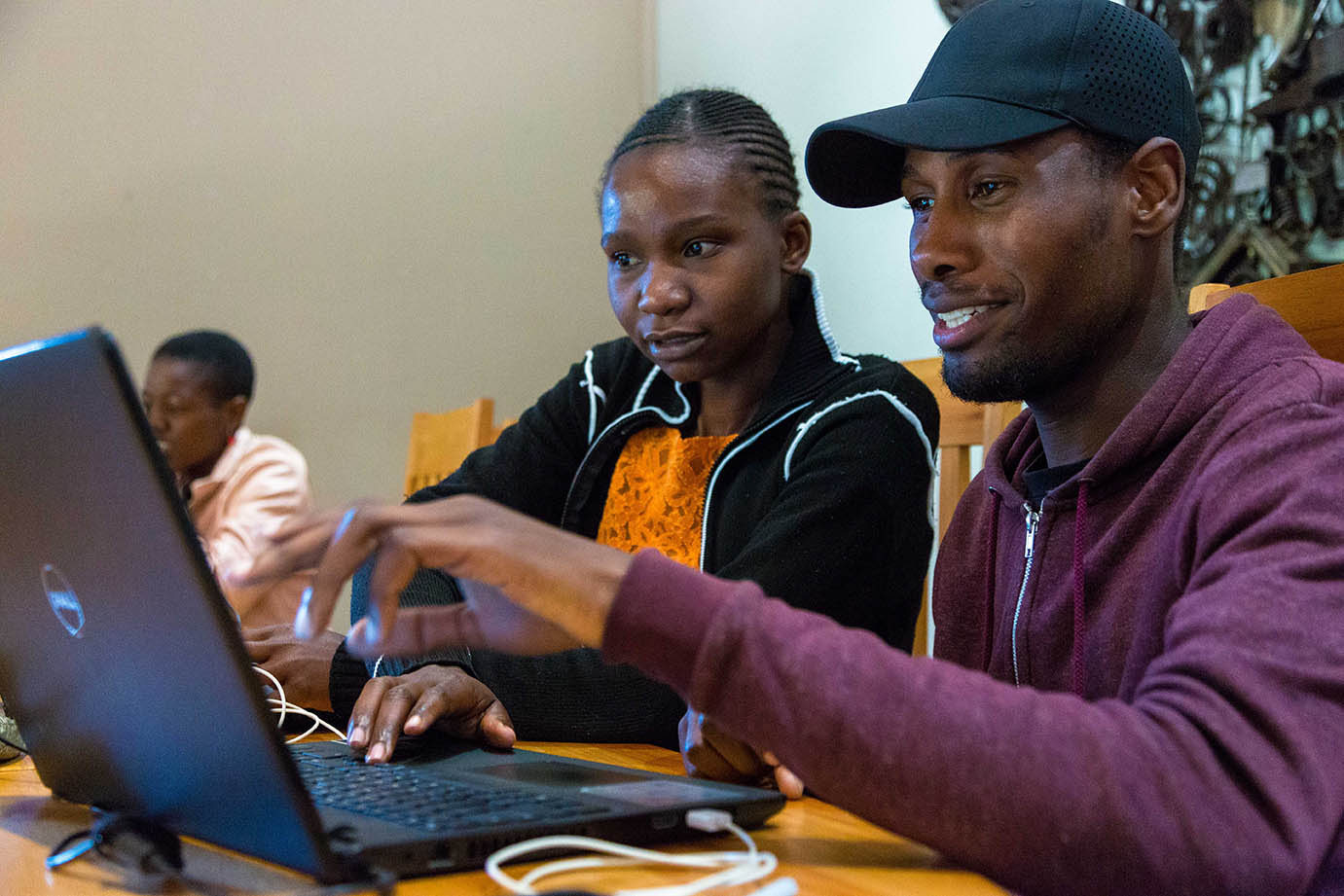
Sub-Saharan Africa has among the widest digital gender gaps as measured by access to mobile internet use, with a gender parity score of 0.75 (Gender parity is achieved between 0.98 - 1.02). Source: ITU, 2022
Twin Transition refers to an approach that harnesses the power of technology and data to achieve sustainability goals. This strategy combines digital and sustainability, leading to significant gains in efficiency and productivity.
A Twin Transition
The concept of the twin transition emphasizes that the transition to digital technology can accelerate progress towards a sustainable future. By integrating sustainability into digital transformation strategies, we can create a greener and more equitable future powered by digital solutions.
Zimbabwe, like many African countries, has an agriculture-based economy that has faced adverse impacts from climate change. The agricultural sector is driven by smallholder farmers, with over 70% of them being women.
In May 2023, UNDP participated in the Transform Africa Summit hosted in Zimbabwe under the theme "Transform, Connect, Innovate." In a discussion panel titled "Female Empowerment - the compass of the Twin Transition," the Zimbabwe Country Office shared insights gained from running climate change mitigation and adaptation programs.
A feminist approach to climate change mitigation and adaptation should ensure that initiatives identify and address the gender-specific impacts of climate change. This includes providing women with access to the resources and technologies they need to adapt to the effects of climate change, such as solar-powered irrigation systems, vegetable driers, and digital tools like smartphones.Verity Nyagah, UNDP Zimbabwe Resident Representative (a.i)
What we are seeing
Here are some opportunities that have the potential to trigger a twin transition and benefit female empowerment:
Digital technology-driven farmer advisory services
These services play a significant role in empowering women farmers in Africa to combat the challenges posed by climate change. UNDP Zimbabwe is establishing a network of automated weather stations to improve localized weather forecasting. Weather data can inform women farmers about weather patterns, helping them plan planting and harvesting activities accordingly. Furthermore, leveraging geospatial and satellite data can enhance advisory services. The Accelerator Lab is collaborating with local start-ups to explore remote sensing technologies for assessing soil organic content, crop health, and moisture levels. This enables smallholder farmers to optimize water usage, reduce pesticide and synthetic fertilizer use, and access real-time extension services through mobile applications and SMS-based platforms.
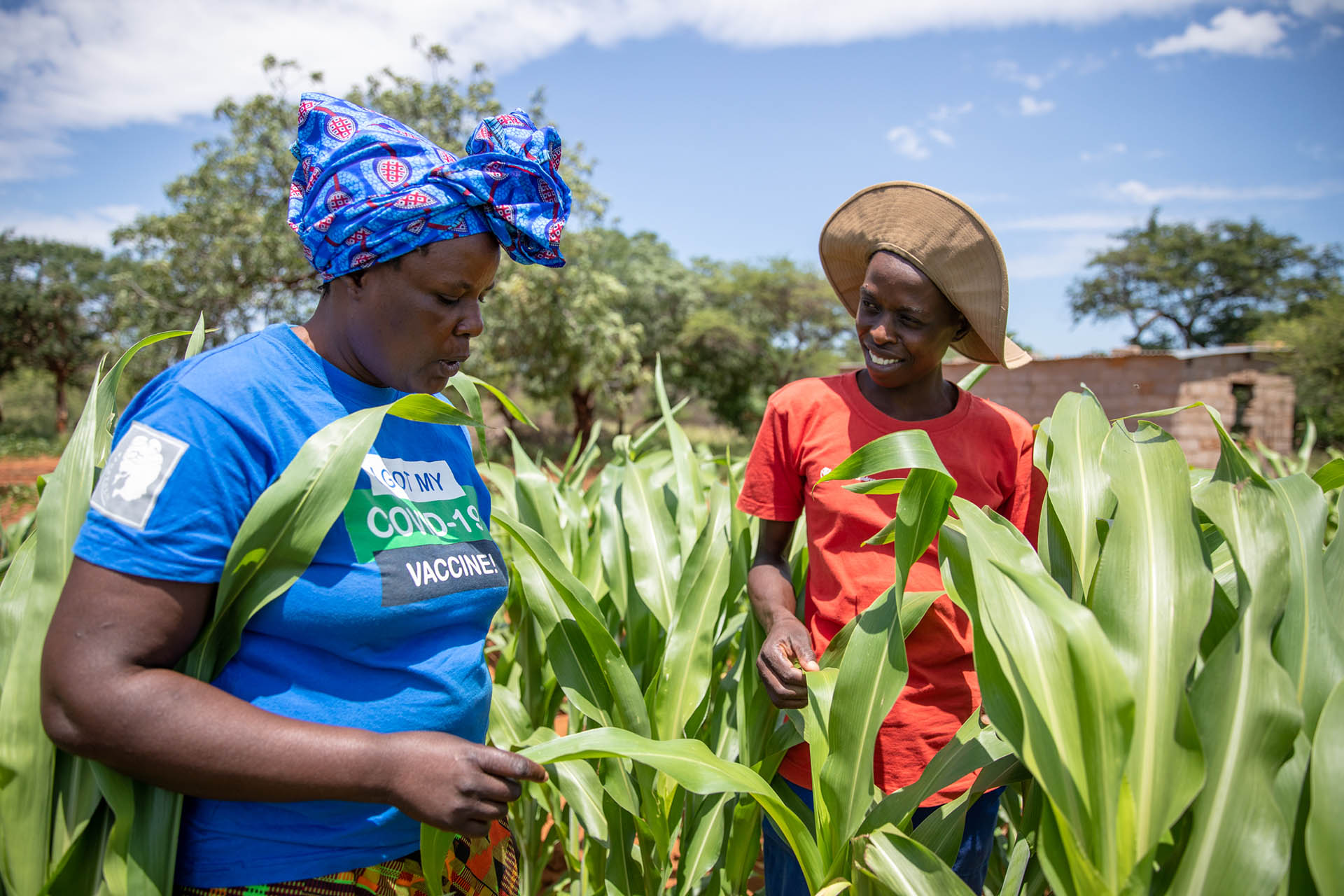
A small holder farmer (right) and extension worker assess a thriving crop of sorghum. Extension services play a critical role and often determining the success of a farming season
Access to finance and agency over productive assets
Limited access to resources and decision-making power makes it harder for women to adapt to climate change. UNDP Zimbabwe has supported the setup and operationalisation of more than 1000 Village Savings and Loans Associations (VSLAs). These associations, primarily consisting of rural smallholder farmers, can be transformed by digital technologies to offer more opportunities for women to secure loans, savings, and insurance services. Digitized VSLAs facilitate the aggregation of financial and agricultural data, enabling tailored financial products for women farmers. This data-driven approach allows financial institutions to better understand the risks and opportunities associated with women's agricultural enterprises. Digital technologies also empower women farmers with agency over productive assets by connecting them directly with buyers through online marketplaces and e-commerce platforms.
Voices and decision-making
Historically, women's perspectives have been marginalized in discussions and policies related to climate change. However, digital technologies provide women farmers with platforms to share their experiences, challenges, and innovative solutions. Social media networks like WhatsApp groups offer spaces for women farmers to communicate, exchange knowledge, and connect. Digital technologies also enable data collection and analysis, supporting evidence-based decision-making. Remote sensing, satellite imagery, and other spatial technologies can provide valuable insights into the impacts of climate change on women farmers, leading to targeted interventions and policies that better represent their voices and needs.
It is crucial to adopt a whole-of-society approach to address the challenges that come with implementing digital technologies for climate action. This approach involves collaboration with multiple stakeholders and considering issues of data privacy, security, and digital literacy. The UNDP's Digital Strategy positions the organization strategically to address these challenges and work with partners. By implementing a whole-of-society approach, we can collaborate to address challenges in Zimbabwe's Digital Ecosystem.
Looking ahead, UNDP Zimbabwe is committed to supporting the country in leveraging digital technology to create a more equitable and resilient future. By placing rural women farmers at the forefront of shaping Africa's agricultural landscape, we can work towards a sustainable future driven by digital technologies.
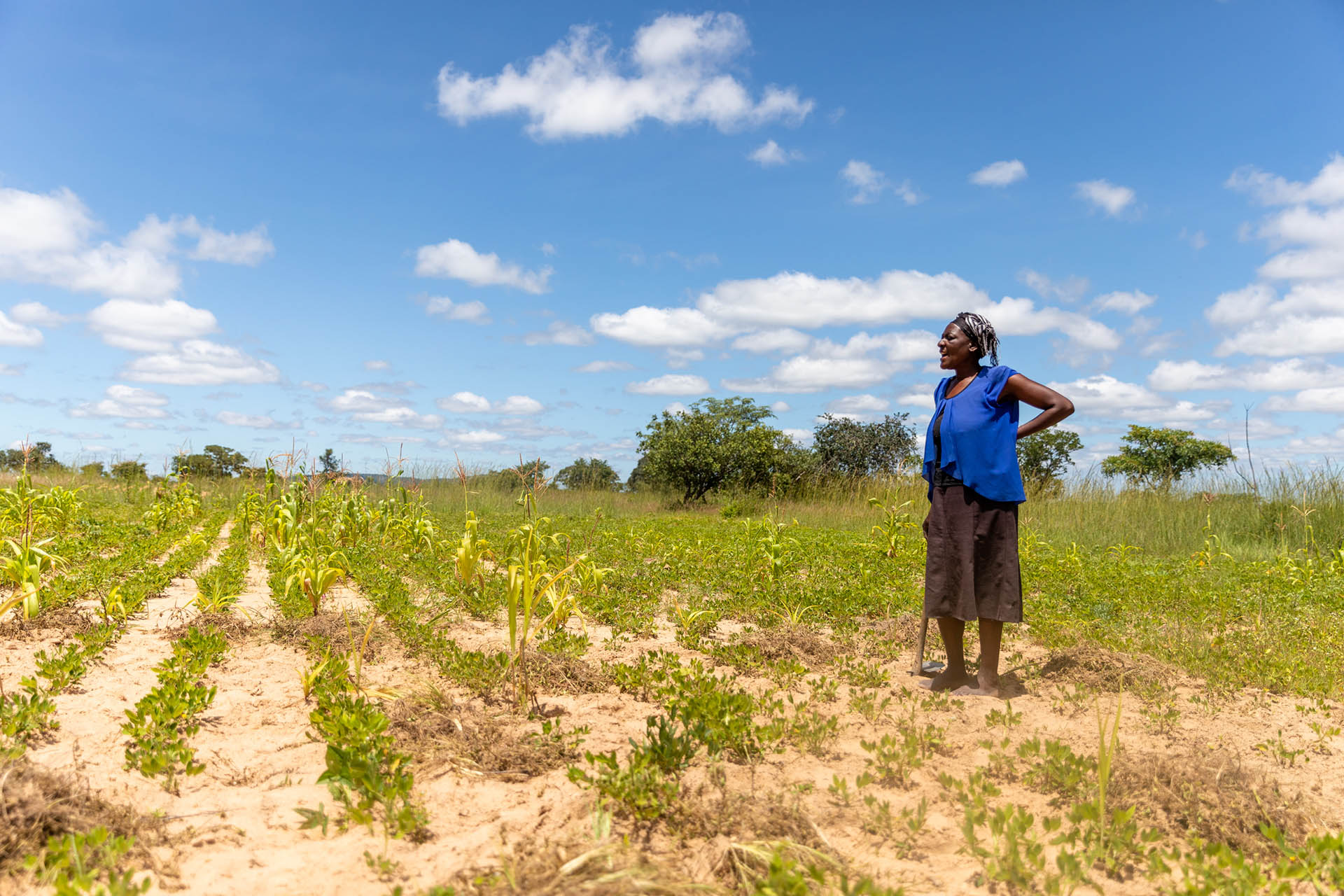
A small holder farmer looks over a failed maize due to a drought
In conclusion, climate change and the digital divide have significant impacts on women, particularly those engaged in agriculture. However, by leveraging digital technologies, we can empower women farmers to adapt to climate change, access finance, and participate in decision-making processes. It is crucial to collaborate with various stakeholders and adopt a whole-of-society approach to address the challenges associated with digital transformation. UNDP Zimbabwe is dedicated to supporting the country in utilizing digital technology for a more equitable and resilient future.
Transform Africa Summit is a prominent annual event in Africa that brings together leaders from various sectors, including government, business, and international organizations to foster collaboration in shaping, accelerating, and sustaining Africa's ongoing digital revolution.
At Transform Africa Summit, UNDP was represented by Chief Digital Officer, Robert Opp, the Resident Representative of Zimbabwe (a.i), Verity Nyagah, Accelerator Lab Head of Experimentation, Gift Ntuli, and Gender Programme Analyst, Doreen Nyamukapa.

 Locations
Locations

